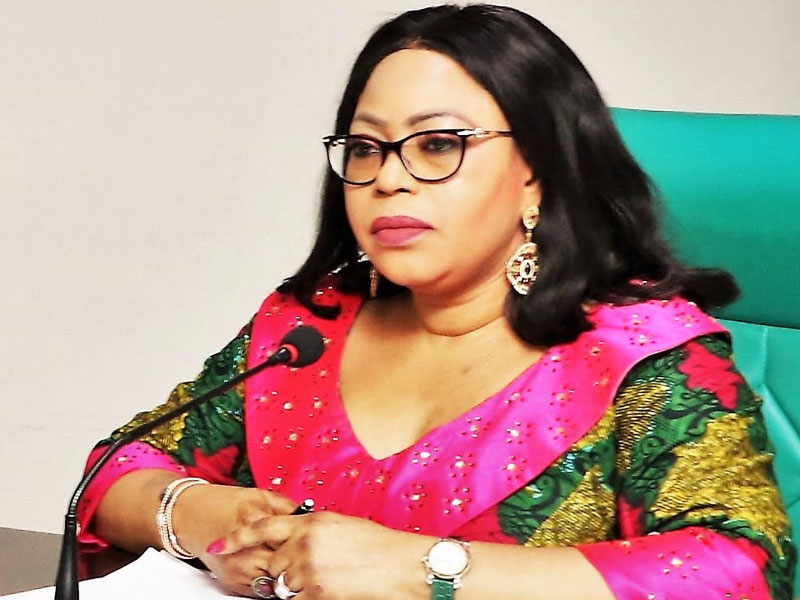
Princess Vicky Haastrup, the Chairman of the Seaport Terminal Operators Association of Nigeria (STOAN), has called on the Nigerian Maritime Administration and Safety Agency (NIMASA) to utilize the 0.5% stevedoring levy remitted by terminal operators for its intended purpose: the training of dockworkers.
Haastrup expressed disappointment that despite the funds being specifically earmarked for dockworkers’ training, NIMASA is yet to implement this initiative, even though significant financial resources are available.
Speaking during the 2024 Dockworkers’ Day celebration organized by the Shipping Correspondents Association of Nigeria (SCAN) and the Maritime Workers Union of Nigeria (MWUN) in Lagos, Haastrup urged the agency to fulfill its obligation by investing in the development of dockworkers, which she emphasized would significantly enhance the workforce and improve the overall efficiency of port operations.
She also praised the Federal Government’s port concession programme, describing it as a “transformative game-changer” for dockworkers. Haastrup noted that the program had dramatically improved working conditions, enhanced productivity, increased job security, and raised wages, leading to better living standards for dockworkers and their families.
“These positive impacts have significantly improved the livelihoods of dockworkers, enabling them to better support their families and communities,” she said. According to Haastrup, the collaboration between STOAN, MWUN, and NIMASA has been instrumental in improving dockworkers’ welfare, particularly through the regular signing of Collective Bargaining Agreements (CBAs). These agreements have ensured fair wages, retirement benefits, and better working conditions for dockworkers across the country.
“Today, dockworkers have comprehensive and robust conditions of service, which include health insurance, life insurance, pension, gratuity, and bonuses. This is a monumental improvement over what obtained in the pre-concession era,” Haastrup stated. She highlighted that the concerted efforts of industry stakeholders have institutionalized fair labor practices, recognizing the vital role dockworkers play in the maritime sector.
Haastrup explained that every two years, STOAN and MWUN, under NIMASA’s supervision, negotiate new CBAs through the National Joint Industrial Council (NJIC). These trailblazing agreements, she said, have significantly improved dockworkers’ welfare, securing better treatment, wages, and retirement benefits, in contrast to the pre-concession era where dockworkers had no formal conditions of service.
“The average dockworker’s take-home pay has increased substantially. The CBA has also fostered industrial harmony at the ports,” Haastrup added. She reaffirmed terminal operators’ commitment to dockworkers’ welfare despite the prevailing economic challenges facing the nation, stressing that the contributions of dockworkers to international trade and commerce are indispensable to Nigeria’s economic development.
In his remarks, Mr. Ascanio Russo, Managing Director of PTML Terminal, echoed Haastrup’s sentiments, describing dockworkers as the “engine room” of port operations. Russo disclosed that PTML has sent several dockworkers abroad for specialized training, further stressing that investment in their development would improve port functionality and increase government revenue.
Similarly, Chief Adebayo Sarumi, former Managing Director of the Nigerian Ports Authority (NPA), urged NIMASA to establish a dedicated training school for dockworkers. He emphasized that such an initiative would further strengthen the maritime sector and equip dockworkers with the skills needed to meet the challenges of modern port operations.















